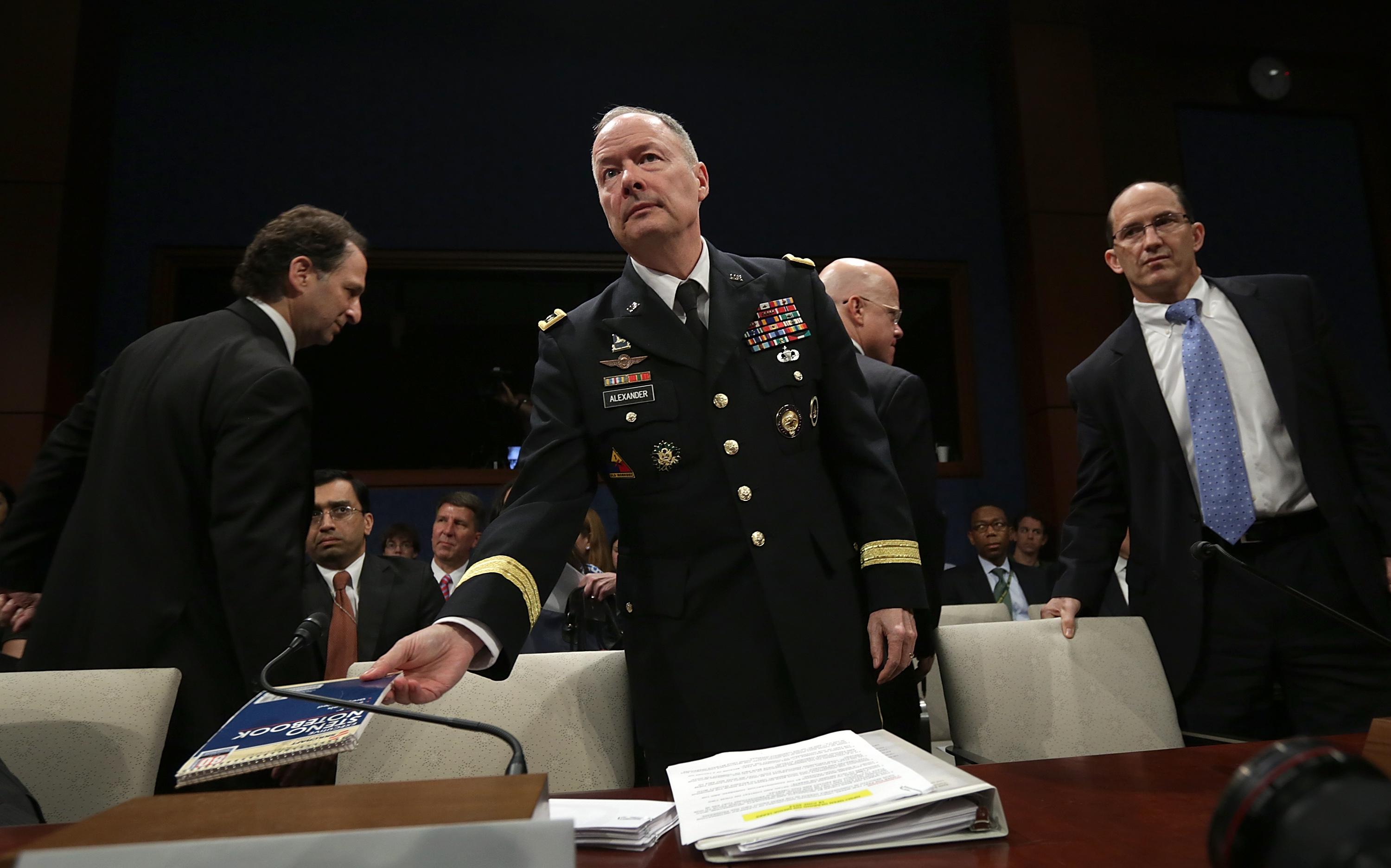NSA Director Keith Alexander and other administration officials are on the Hill today where they’re providing the latest defense of the two Snowden-leaked government spying programs that have sparked controversy at home and abroad. The big early takeaway: Alexander told lawmakers that the programs have helped thwart roughly 50 “potential terrorist events” in 20 countries since 2001, and that at least 10 of those plots had targets within the United States. “I would much rather be here today debating this than explaining why we were unable to prevent another 9/11,” he told lawmakers at a somewhat rare public hearing of the House Intelligence Committee.
Alexander promised to provide the classified details of all of the foiled threats to the lawmakers, but left the exact size and scope of the terrorist plots in question unclear to the public. FBI Deputy Director Sean Joyce, however, managed to color in some of the details, highlighting several cases where he said the surveillance programs helped save the day. Among them were separate plots to bomb the New York Stock Exchange and the New York City subway. He also said that the programs help link a U.S. citizen to the 2008 attacks on hotels in India, and to a plot to bomb the offices of a Danish newspaper that published a cartoon of the Prophet Muhammad in 2006.
Still, even when going into the most detail to date, Joyce still painted with only broad brush strokes, something that highlights what has proved to be one of the administration’s most difficult challenges: justifying sweeping, secret surveillance programs while still keeping many specifics a secret from those it’s trying to win over. With the NYSE plot, for instance, Joyce said only that the NSA used PRISM to monitor an extremist in Yemen who was in contact with an operative in the United States.
Alexander and Joyce are facing a pretty easy audience today. The panel’s bipartisan leaders—Republican Rep. Mike Rogers and Democratic Rep. C.A. Dutch Ruppersberger—have both been vocal defenders of the programs, a sentiment they’ve again made clear today. “It is at times like these where our enemies within become almost as damaging as our enemies on the outside,” Rogers said. Ruppersberger, meanwhile, added that the “brazen disclosures” by Edward Snowden put the United States and its allies abroad at risk.
I’ll continue to update with any major revelations, but you can follow along here at the WaPo’s live video feed.
